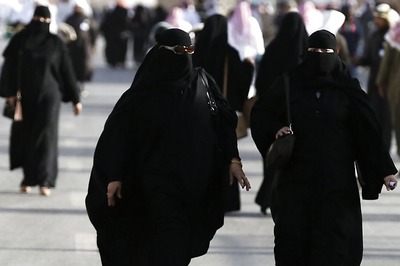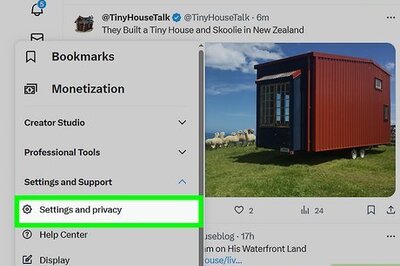
views
New Delhi: The Narendra Modi government has decided to repeal the section of Article 370 of the Constitution that grants special and autonomous status to Jammu and Kashmir, moving ahead with its plan to fundamentally change J&K’s relation to India in an announcement that will have far-reaching political and international ramifications and has the potential to cause massive unrest in the region.
After days of speculation triggered by developments that served as a prelude to the unprecedented decision, Home Minister Amit Shah on Monday announced in Rajya Sabha that a presidential decree has been passed that in effect ends special status for the state.
He also moved a bill to bifurcate J&K into two union territories – a Jammu and Kashmir with a legislature, and Ladakh without one.
"The entire constitution will be applicable to Jammu and Kashmir," Shah told Parliament amid uproar from the opposition benches.
The government’s move will bring several changes to the region, including an end to the ban on property purchases by non-residents, opening the way for Indians to invest and settle there just as they can elsewhere in India. The measure, however, is likely to provoke a backlash by locals.
Shah blamed Article 370 as being the root cause of terrorism and corruption in Kashmir and claimed that only two families had benefited from it. With it gone now, he said, the government will turn it into the most developed region in five years.
He also assured the people of Jammu and Kashmir, which is in lockdown and where almost all forms of communication have been snapped to prevent unrest, that the government will reinstate statehood once the situation becomes normal. The government decision reached people in the Valley by radio amid the near blackout.
Article 370, which was key to J&K’s accession to India, was introduced by the Constituent Assembly in 1949. It specifies that except for Defence, Foreign Affairs, Communications and ancillary matters (matters specified in the Instrument of Accession), the Indian Parliament needs the state government's concurrence for applying all other laws.
Thus, the state's residents lived under a separate set of laws, including those related to citizenship, ownership of property, and fundamental rights, as compared to other Indians.
The presidential order scrapping the Article came after a crafty constitutional manoeuvre by the government that is likely to be challenged in Supreme Court.
Article 370 stated that changes through the presidential order could only be done in consultation with the Constituent Assembly of Jammu and Kashmir, which was dissolved after the accession of the state to the Indian Union.
To end the special status, the government first gave authority of the Legislative Assembly to the Governor, and then changed the ‘Constituent Assembly’ to mean ‘Legislative Assembly’, which means that the President issued the order upon the Governor’s recommendation.
The government by issuing the order has also superseded the 1954 presidential order which gave special powers to the state under Article 35A.
The government's huge step came after a massive build-up of troops in the restive Kashmir Valley over the last 10 days and a night when senior political leaders, including former Chief Ministers Omar Abdullah and Mehbooba Mufti, were placed under house arrest.
Both leaders were detained on Monday evening and moved to guest houses, hours after they voiced strong opposition to the scrapping of the special status and called the move unconstitutional.
National Conference leader Omar Abdullah said the move and how it was brought about was a total betrayal of the trust that the people of Jammu and Kashmir had reposed in India when the state acceded to it in 1947.
“The scrapping of Articles 370 and 35A raise fundamental questions on the State’s accession because that was done on the very terms enunciated in these Articles,” Abdullah said via a statement, adding that the National Conference will challenge the decision in court.
Scathing in her response, Mehbooba Mufti said it was the darkest day of Indian democracy and Kashmir’s decision to align with India had backfired. “Unilateral decision of GOI to scrap Article 370 is illegal & unconstitutional which will make India an occupational force in J&K,” she tweeted.
The Congress also strongly opposed the move, with Leader of Opposition in Rajya Sabha and former J&K CM Ghulam Nabi Azad, calling it the "murder of India's Constitution" and labeling the BJP "tukde tukde" gang for dividing the border state. Former union minister P Chidambaram asked what stopped the government from taking the same route to divide other states like Tamil Nadu and West Bengal.
But the government resolution on Article 370 and the two bills – on bifurcation of the state and to grant 10% reservation to EWS category – sailed through the Rajya Sabha as several regional parties, including the BSP, YSR Congress, TDP, BJD, AAP and AIADMK came out in support of the decision. BJP ally JD(U) was a notable exception and staged a walkout before the vote took place. The resolution and the bills will be introduced in Lok Sabha on Tuesday.
The government, meanwhile, decided to airlift another 8,000 troops to the state and the ministry of home affairs has asked forces in all states to remain on high alert.


















Comments
0 comment